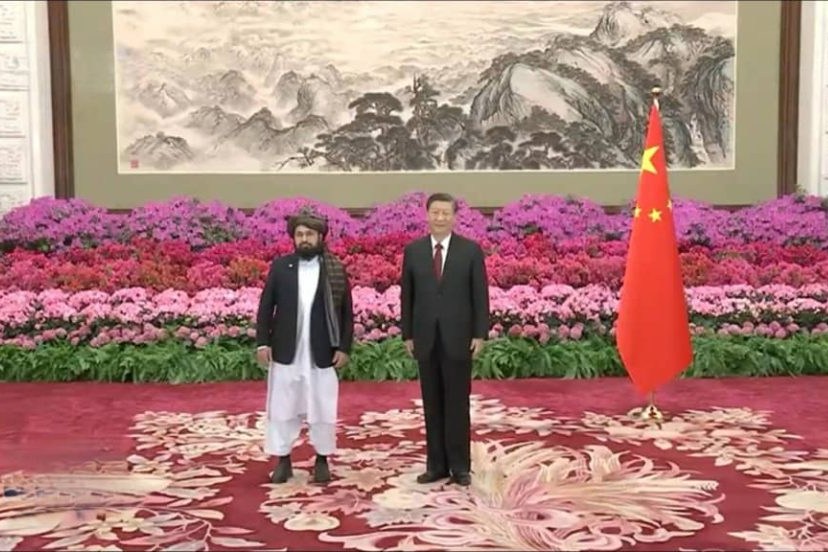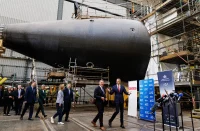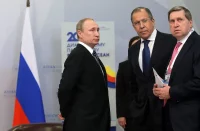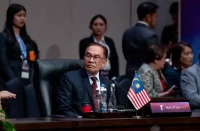Despite the controversial nature of the Taliban’s status as the new authority in Afghanistan, China has seemingly chosen the path of quiet and unnoticed de facto recognition of the new regime through increasing political and economic contacts, as well as active investment in the country’s infrastructure.
In October 2023, China became the first country to assign a new Ambassador to Kabul, with Taliban’s Foreign Minister Amir Khan Muttaqi saying that it was a “significant step with a significant message” and emphasizing that this should pave the way for other countries to establish relations with the Taliban-led authorities. China, in turn, described the event as a “normal rotation of China’s ambassador to Afghanistan”. However, this was far from truth.
There are other diplomats in Afghanistan with the title of Ambassador, but all of them assumed their posts before August 2021 presenting their credentials to the Western-backed former President Ashraf Ghani. Since the establishment of the Taliban-led regime, some nations have appointed new highest ranked diplomats to Kabul, however, all of them assumed the title of Chargé d’affaires, which does not require presenting ambassadorial credentials to the head of state of the host nation.
China changed this trend by appointing a new Ambassador, who, upon arriving, presented his credentials singed by Chinese President Xi Jinping to Taliban Prime Minister Mohammad Hasan Akhund. This meant de facto recognition of the Taliban as the legitimate authority in Afghanistan.

Beijing-Kabul relations gained a new impetus in January, as China became the first country to receive the Taliban’s government envoy overseas. Ambassador Bilal Karimi along with 41 Ambassadors from other countries were received by Chinese President Xi Jinping and presented ambassadorial credentials to the Chinese leader.
This was met with bewilderment by the United States. “I’ve seen those reports, and I think I would let the Chinese Government speak to what this means in terms of their relationship and whether they have formally recognized the Taliban or not,” said US State Department spokesperson Matthew Miller. He also emphasized that the United States’ current Afghanistan policy will not change following the recent events.
Ever since the withdrawal of US troops from Afghanistan in August 2021 and the subsequent establishment of a Taliban-led regime in the country, the recognition of the new government has been a challenging and contentious topic. The United Nations along with most of the world community demand that the Taliban respect international humanitarian law in order to gain recognition. However, the de facto Afghan government is far from adhering to international norms.
In December 2023, the head of the UN Assistance Mission in Afghanistan Roza Otunbayeva said in a statement that the current situation in Afghanistan is characterized by “systemic discrimination against women and girls, repression of political dissent and free speech, a lack of meaningful representation of minorities, and ongoing instances of extrajudicial killing, arbitrary arrests and detentions, torture and ill-treatment”.
China has sought to expand its relations with the current government, saying that it “respects the independent choices made by the Afghan people, never interfered in Afghanistan’s internal affairs, never seeks self-interests or the so-called spheres of influence in Afghanistan”. In this regard, China (along with Russia) abstained during a UN Security Council vote for the appointment of a special UN envoy to Afghanistan – a policy that the Taliban strongly opposes.
China has its interests in Afghanistan, Being one of the first nations to engage with the Taliban on a deep basis, it gains access to the rich natural resources of the country. Immediately after the Taliban’s Ambassador to China assumed his post, negotiations began with the Chinese state-owned company MCC, with the latter aiming to get access to the second largest copper deposit in the world located in Afghanistan. China also seeks to diversify its oil imports, thus, strongly interested in the potential of Afghan oil.
What is more, Afghanistan is increasingly more invested in the Chinese Belt and Road Initiative. China already builds a 300 km road from Badakhshan to the Chinese border, which will give an impetus to trade between the two countries. Afghanistan’s location also means it can be integrated into the China-Pakistan Economic Corridor, which connects China to its strategic asset to the West of India – the port of Gwadar.
The Taliban officials have already taken part in a wide range of Chinese events, namely the China-Tibet Trans-Himalaya Forum and the Belt and Road International Forum in Beijing in October 2023.
All in all, China is seemingly trying to capitalize on the power vacuum that exists in modern-day Afghanistan. Most Western nations severed relations with the Taliban-led authorities, while others have been hesitant on whether they should pursue an active policy of engagement with the new government. China, on the other hand, has played its cards skillfully to set up a web of informal political and economic ties with the country, while maintaining its formal refusal to recognize the Taliban as the legitimate government in the country.














Comments